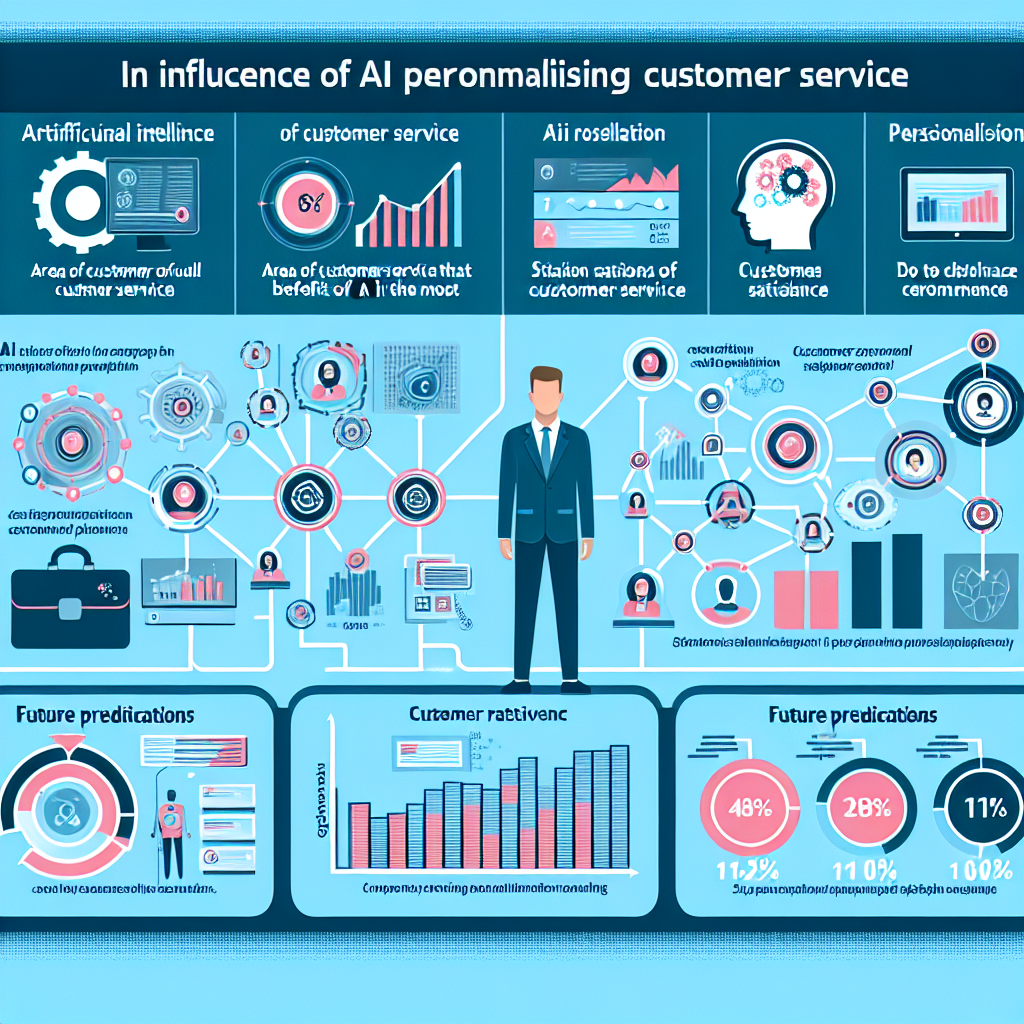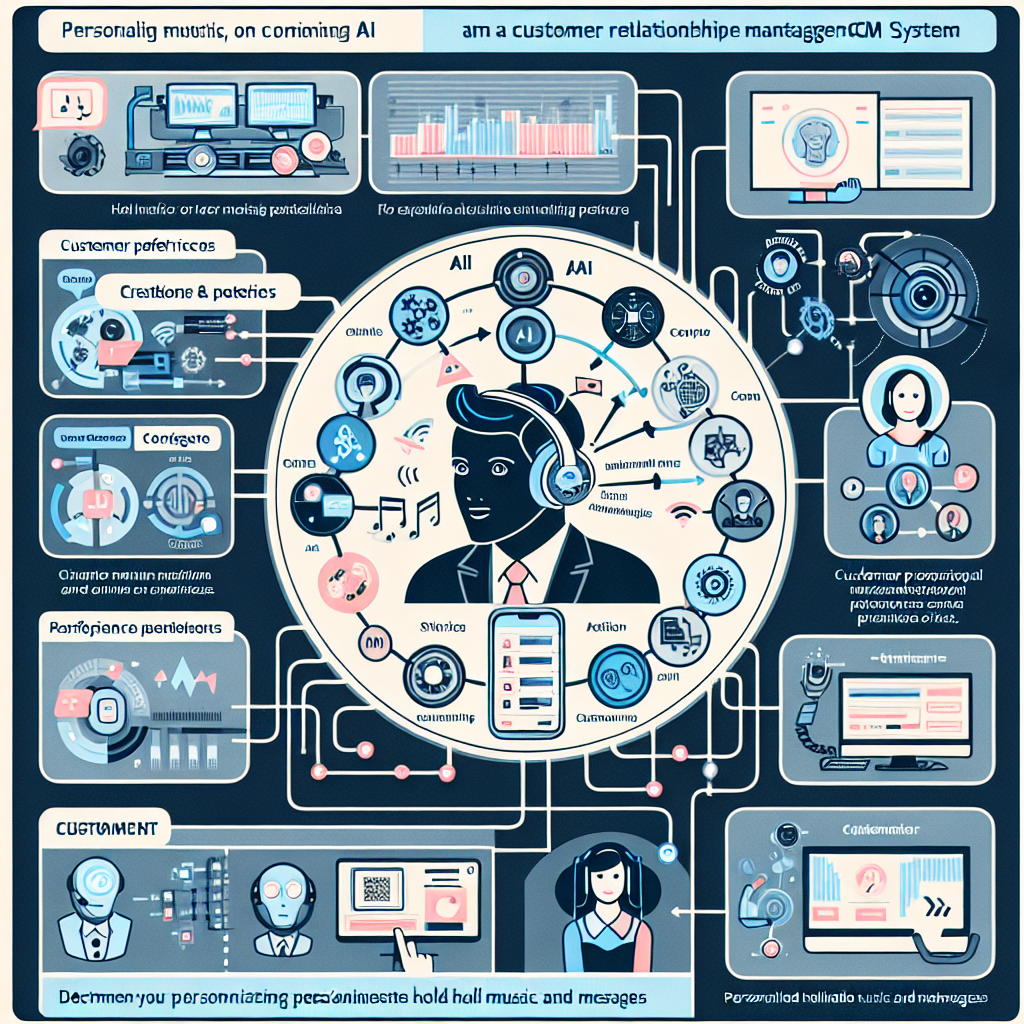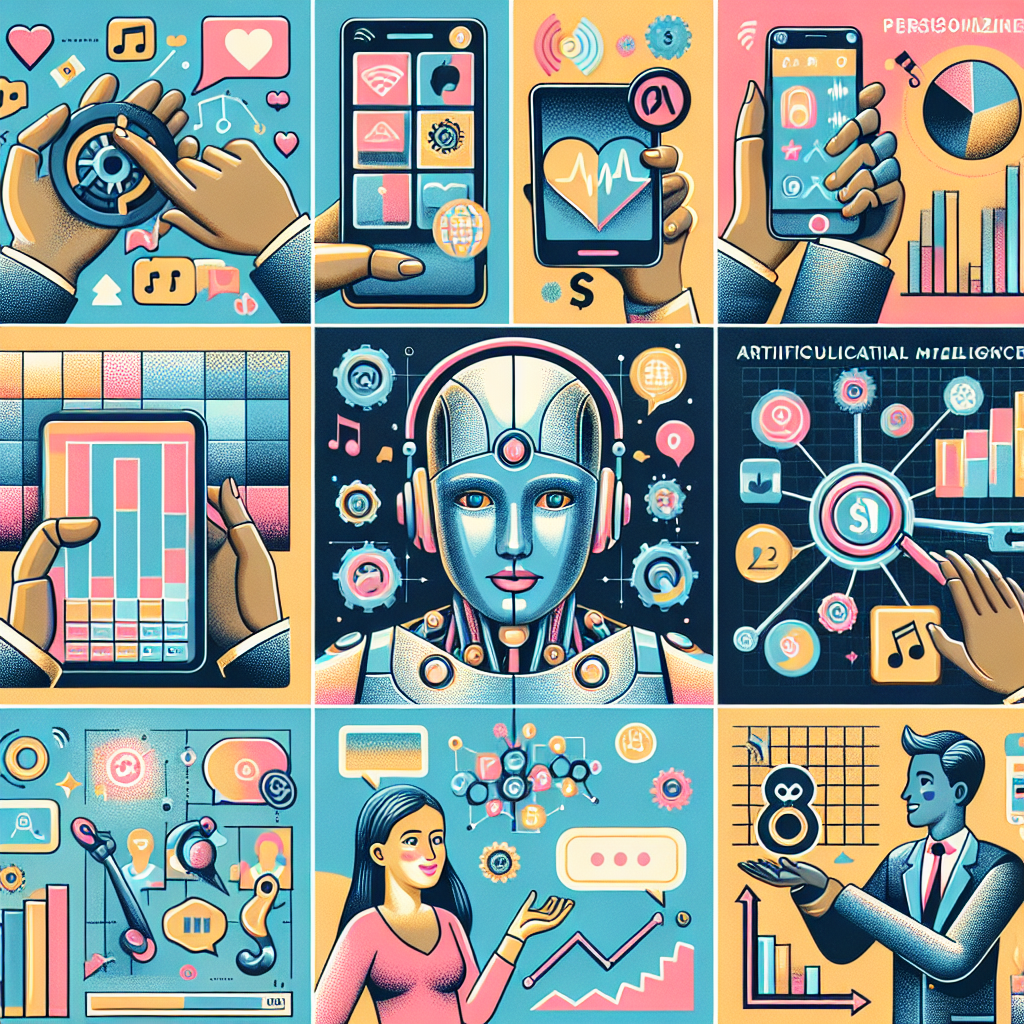
As technology evolves, so too does the way businesses connect with their customers. A critical area of innovation and development in enhancing customer service experience is artificial intelligence (AI). By leveraging AI's capability to analyze and manipulate vast amounts of data, companies are able to create more personalized experiences for their clients. This personalization is most evident within the telecommunication space where companies are utilizing AI to customize hold music and messages to individual caller profiles.
Consider this scenario: Imagine you are a frequent caller to a particular service line. Instead of listening to a generic hold music or standard recorded message every time you call, imagine if the music or message was tailored to your musical preferences, or even communicated useful information relevant to your reason for calling. This enhances your user experience drastically. The use of AI in personalizing hold music and messages eliminates the dullness usually associated with long wait times and creates a positive impression of the company.
Good examples of AI in customer service show that personalized services, such as customized hold music and messages, can significantly improve customer retention and satisfaction. By leveraging advanced AI algorithms, companies can analyze previous interactions, caller behaviour, cultural background, and geographic location to customize the customer service experience in real-time.

So, how exactly does AI achieve this feat? The answer lies in its capability to learn from data. AI algorithms sift through vast amounts of customer data, recognise patterns, make predictions and suggest actions. All of these processes aid in coming up with appropriate, customized experiences for different customer profiles.
Understanding the role of AI in customer service and particularly in personalization does not only optimise the customer experience but also speaks to the exciting future of technology-driven customer service. There's no doubt that as AI technology continues to evolve and improve, so too will the customer service experience.
Advancements in artificial intelligence (AI) are bringing unprecedented changes in various sectors, and telecommunication is no stranger to these developments. One such innovation is the personalization of hold music and messages based on the caller's profile, which operates under a fascinating process.
At the heart of the system lies Machine Learning (ML), a branch of AI that equips systems with the capability to learn and improve without explicit programming. It starts with the caller data analysis, an insightful procedure diving into the caller's historical data and interactions. AI accesses the data from the CRM (Customer Relationship Management) software to understand a caller's preferences, past requests, geographical location, preferred language, among other aspects.
Based on the analyzed information, AI can anticipate the caller's needs and preferences. Leveraging predictive analytics, the AI system then selects an appropriate piece of hold music or prerecorded message that aligns with these preferences.
The AI system is continuously learning and improving its prediction accuracy through a process called Reinforcement Learning (RL). RL enables the AI to adjust its selection algorithms based on the responses received from the caller. For instance, if a caller regularly hangs up when a specific hold message is played, the AI will learn to avoid similar messages for this particular caller in the future.
This level of personalization enhances the customer experience by making the waiting time more enjoyable or informative. The potential of this technology extends beyond personalizing hold music and messages. Implementing AI in telecommunication can lead to a complete overhaul of IVR (Interactive Voice Response) systems, paving the path towards AI-driven personalized customer interactions.
The integration of artificial intelligence (AI) with Customer Relationship Management (CRM) systems heralds a breakthrough in customer service. It's a game-changing approach that not only enhances caller experience but also provides valuable data for further business analysis. Here is an insightful resource explaining the importance of AI in CRM.
In this systemic combination, AI cleverly accesses caller information from the CRM database. This includes customer demographics, past interactions, preferences, and even their behavioral pattern over calls. This assimilated information is instantly analyzed to provide the most appropriate hold music and messages personalized to the caller's profile. The result is a more engaging and tailored customer experience during what would have been a rather tedious waiting period.

For instance, if the CRM identifies a customer who has shown interest in certain products or promotions, an AI-powered system can ensure that the on-hold messages share information and updates about similar products, thereby leading to possible cross-selling or upselling opportunities.
Similarly, the hold music can be adapted to the caller’s preferences or particular mood, as interpreted by the AI from their previous interactions. This might include their preferred genre of music, soothing instrumentals for an upset customer or energetic tunes for a positive customer. Such personalization can effectively manage caller emotions making the wait less irksome and more pleasant.
A balanced amalgamation of CRM and AI, this approach not only enhances customer experience but also opens doorways to additional sales possibilities and refined customer engagement strategies. Furthermore, these interactions are a treasure trove of data, providing invaluable inputs to improve and personalize CRM strategies.
As AI continues to evolve and fine-tune the art of personalization, the integration of AI in CRM systems for personalizing hold music and messages is only set to become more sophisticated and precise, redefining future customer experiences.
Hold times are a necessity in busy customer service environments. However, they can often lead to frustration for callers. The implementation of Artificial Intelligence (AI) in personalizing hold music and messages based on caller profiles presents many benefits that can help alleviate some of this frustration. It offers a new, innovative way to enhance the caller experience.
Firstly, personalizing audio during hold times can significantly contribute to improving caller satisfaction. By tailoring the music and messages to the taste or expectations of every individual caller, companies are able to offer a more pleasant experience during waiting times. This turns a usually monotonous experience into a personalized moment, which naturally improves callers' perceptions of the company.
Additionally, this kind of personalization could lead to increased patience amongst callers. No longer subjected to generic, repetitive hold music, callers may be more willing to wait for their call to be answered. Studies have even shown that music can influence patience levels and stress, meaning that listeners feel more relaxed and less anxious.
A third significant benefit is metered around the idea of connection. A personalized message can make the caller feel valued and recognized by the company. This connection can improve their overall perception of their relationship with the business, fostering loyalty and positive experiences.
In conclusion, the potential of AI in personalizing hold music and messages based on caller profiles is substantial. It can enhance caller patience and satisfaction, foster deeper connections, and ultimately, improve the customer service experience. This innovation is just one of the many ways that AI can improve our day-to-day experiences - from mundane hold times to unforgettable customer service.
Across various business sectors, the utilization of AI in personalized hold music and messages is proving to be a game changer. Influential companies are experiencing first-hand the transformational impact it is having on customer satisfaction levels and overall business efficiency. Several real-world examples serve to highlight some of the successes gained from this dynamic approach.

Amtrak, the US-based passenger railroad service, has embraced AI in personalizing hold music and messages for its customers. Their AI-powered virtual assistant, Julie, uses advanced algorithms to determine the caller's needs and preferences, thereby enhancing the overall customer communication experience. The switch to AI led to an impressive 30% decrease in call duration, greatly improving their efficiency.
Addressing health care needs, Kaiser Permanente, a leader in healthcare provision, implemented intelligent call routing. Right from the start, the AI system customizes the patient’s call experience by recognising the patient’s profile, history, and likely reasons for calling. Personalized hold music and messages make the waiting time significantly less impersonal and more comforting. This superior service has yielded high customer satisfaction scores.
This AI-driven approach even extends to the restaurant business. Domino's, a globally recognized pizza delivery company, has introduced AI to their call centers to differentiate themselves in a highly competitive market. The comprehensive profile of the caller guides the choice of hold music and personalized messages improving the customer ordering experience. As a result, Domino's has seen an increase in repeat orders, received positive feedback, and importantly, furthered brand loyalty.
The aforementioned case studies are poignant examples of how AI in personalizing hold music and messages is revolutionizing customer engagement across varied industries. Implementing AI improves not just customer experience, but also the efficiency of the businesses that have adopted this smart communication strategy.
The artificial intelligence (AI) revolution is rapidly changing many aspects of our lives, and communication is no exception. One of the latest developments in this area is the use of AI to personalize hold music and messages based on the caller's profile, an innovation that holds numerous future potentials and emerging trends.
Compared to generic hold messages and music - which can often be frustrating and unpleasant - AI-enhanced personalization offers an improved customer experience by catering to the unique preferences and needs of each individual caller. However, it's important to understand that this is just the tip of the iceberg when it comes to the applications of AI in communication.
On a broader scale, AI holds the promise of completely transforming the customer service landscape. It's not hard to envision a future where AI could analyze a caller's past interactions, mood, language choice, and even the background noise to fine-tune the hold experience even further. AI's learning capabilities mean that, over time, it will become better at creating a more balanced, pleasant, and individualized experience for the customer.
Additionally, there are exciting opportunities for integrating AI with other technologies to create a truly immersive customer experience. This could include using virtual reality (VR) for visual hold messages, or using blockchain technology to securely store and manage customer data for personalization purposes. The future of customer service could well be a multi-sensory, reactive, and fully personalized experience, powered by AI.
Of course, such advancements also come with their share of challenges. Ensuring privacy and data security will be paramount, as will the need to create AI systems that can adjust to changing customer needs and preferences. But given the immense potential benefits, there's little doubt that AI personalization in hold music and messages is a trend that's here to stay.
The communication landscape is shifting, and with the advancements in AI, the horizon is bright. Indeed, the future holds numerous possibilities, and with each passing day, we are unlocking new ways to improve and personalize customer communications.
Start your free trial for My AI Front Desk today, it takes minutes to setup!








